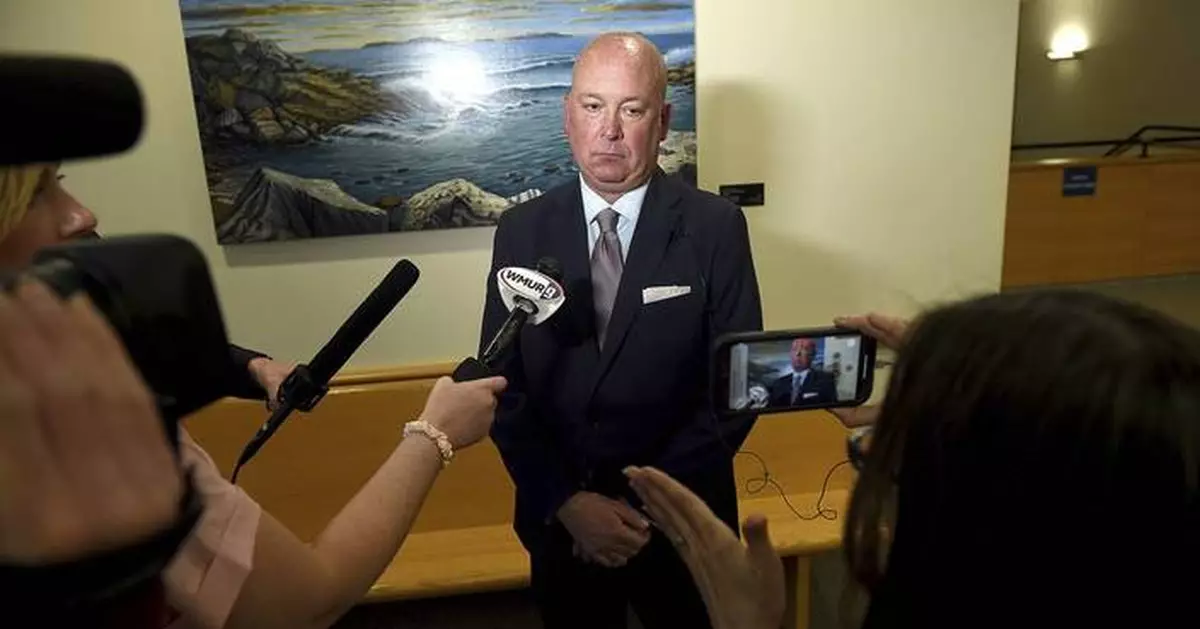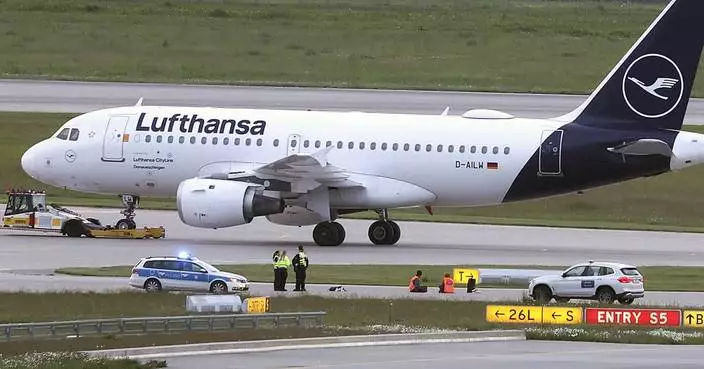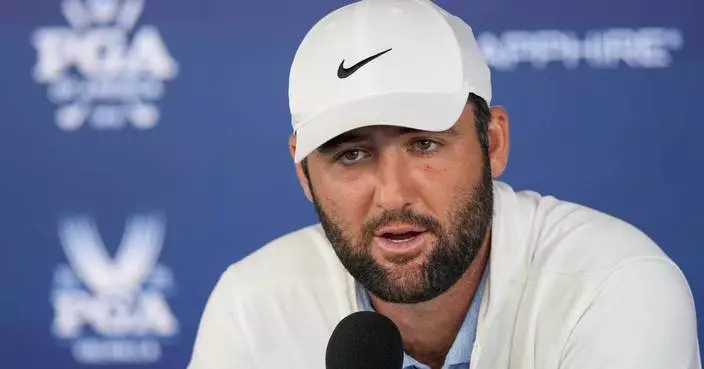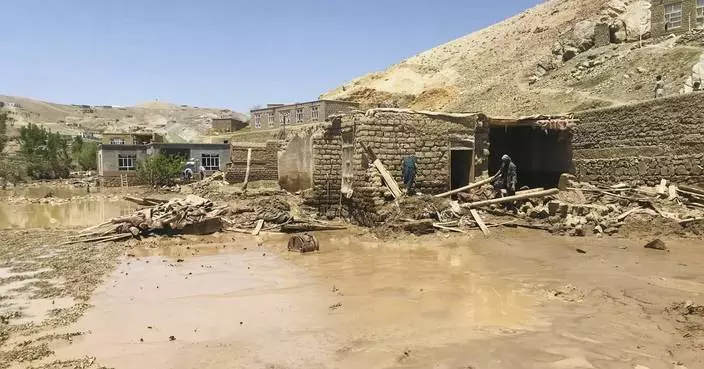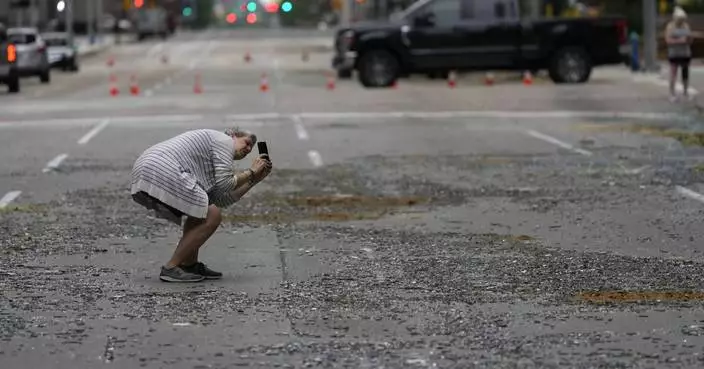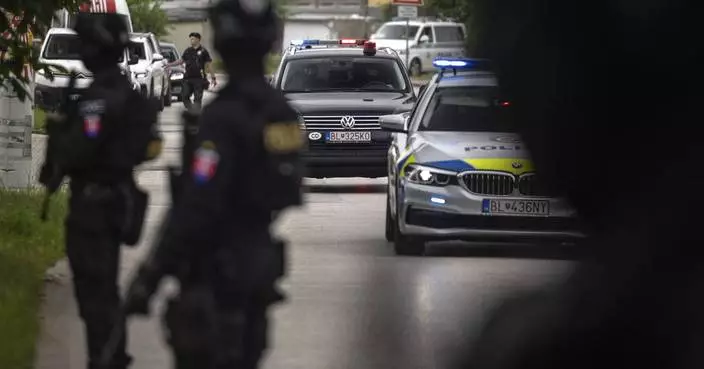CONCORD, N.H. (AP) — Attorneys for a New Hampshire man who prevailed in a landmark lawsuit over abuse at a state-run youth detention center are asking for a hearing after the jury foreperson expressed dismay that the $38 million award could be slashed to $475,000.
Jurors on Friday awarded $18 million in compensatory damages and $20 million in enhanced damages to David Meehan, who alleged that the state’s negligence allowed him to be repeatedly raped, beaten and held in solitary confinement as a teenager at the Youth Development Center in Manchester. But the attorney general’s office said the award would be reduced under a state law that allows claimants against the state to recover a maximum of $475,000 per incident.
“I’m so sorry. I’m absolutely devastated,” the jury foreperson wrote to attorney Rus Rilee on Friday evening, according to the hearing request filed Saturday.
Jurors were not told of the cap, but they were asked how many incidents it found Meehan had proven. They wrote “one,” but the completed form does not indicate whether they found a single instance of abuse or grouped all of Meehan’s allegations together.
“We had no idea,” the jury foreperson wrote. “Had we known that the settlement amount was to be on a per incident basis, I assure you, our outcome would have reflected it. I pray that Mr. Meehan realizes this and is made as whole as he can possibly be within a proper amount of time.”
After consulting with outside counsel with expertise in post-trial matters, Rilee and attorney David Vicinanzo requested that a hearing be held Monday. According to their request, Rilee did not see the email from the juror until Saturday and did not reply.
Meehan, 42, went to police in 2017 and sued the state three years later. Since then, 11 former state workers have been arrested and more than 1,100 other former residents of the Youth Development Center in Manchester have filed lawsuits alleging physical, sexual and emotional abuse spanning six decades.
Meehan’s lawsuit was the first to be filed and the first to go to trial. After four weeks of testimony, jurors returned a verdict in under three hours.
Over the course of the trial, Meehan’s attorneys accused the state of encouraging a culture of abuse marked by pervasive brutality, corruption and a code of silence. They called more than a dozen witnesses to the stand, including former staffers who said they faced resistance and even threats when they raised or investigated concerns, a former resident who described being gang-raped in a stairwell, and a teacher who said she spotted suspicious bruises on Meehan and half a dozen other boys.
The state argued it was not liable for the conduct of rogue employees and that Meehan waited too long to sue. Its witnesses included Meehan’s father, who answered “yes” when asked whether his son had “a reputation for untruthfulness.” Others who testified included a longtime youth center principal who said she saw no signs of abuse over four decades and a psychiatrist who diagnosed Meehan with bipolar disorder, not the post-traumatic stress disorder claimed by his side.
In cross-examining Meehan, attorneys for the state portrayed him as a violent child who continued to cause trouble at the youth center — and a delusional adult who is exaggerates or lies to get money. The approach highlighted an unusual dynamic in which the attorney general’s office is both defending the state against the civil lawsuits and prosecuting suspected perpetrators in the criminal cases.
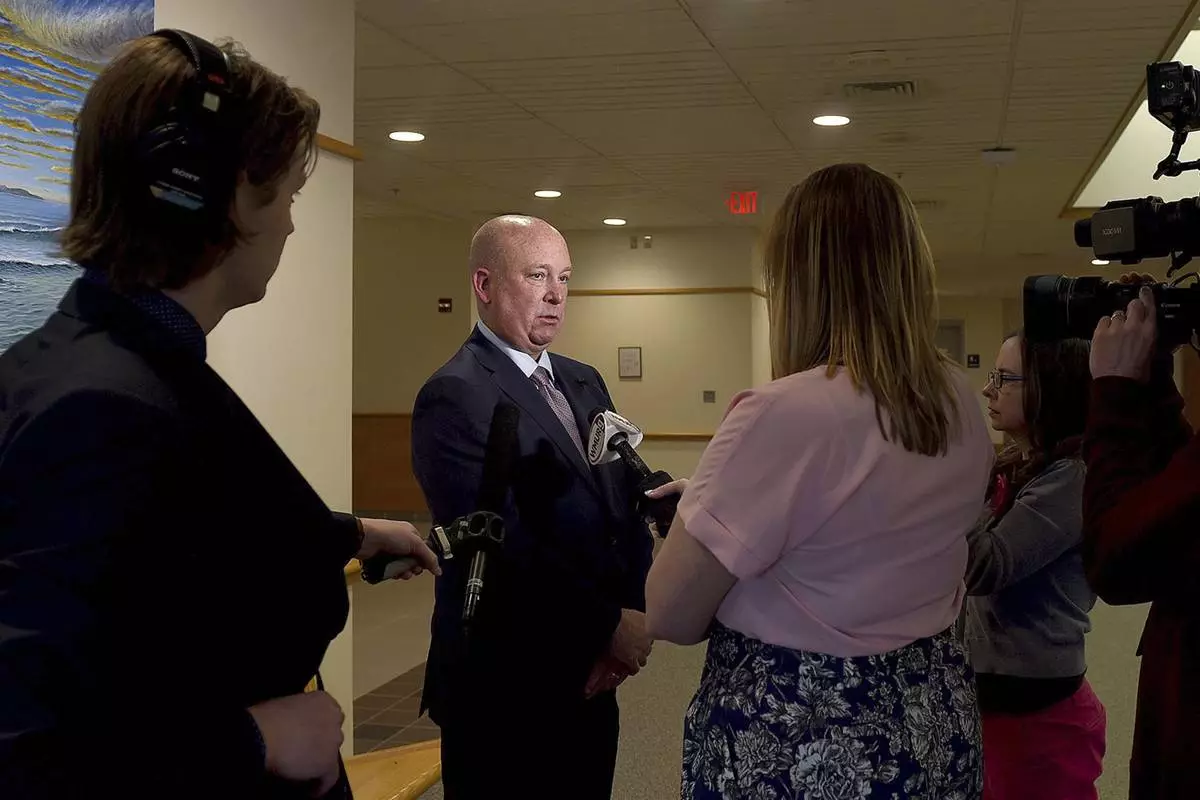
Plaintiff's attorney Rus Rilee speaks to media after a $38 million ruling was awarded to David Meehan in the youth center abuse trial at Rockingham County Superior Court in Brentwood, N.H., Friday, May 3, 2024. The jury found the state liable for abuse at its youth detention center and awarded the sum to Meehan, a former resident who says he was beaten and raped as a teen. (David Lane/Pool Photo via AP)
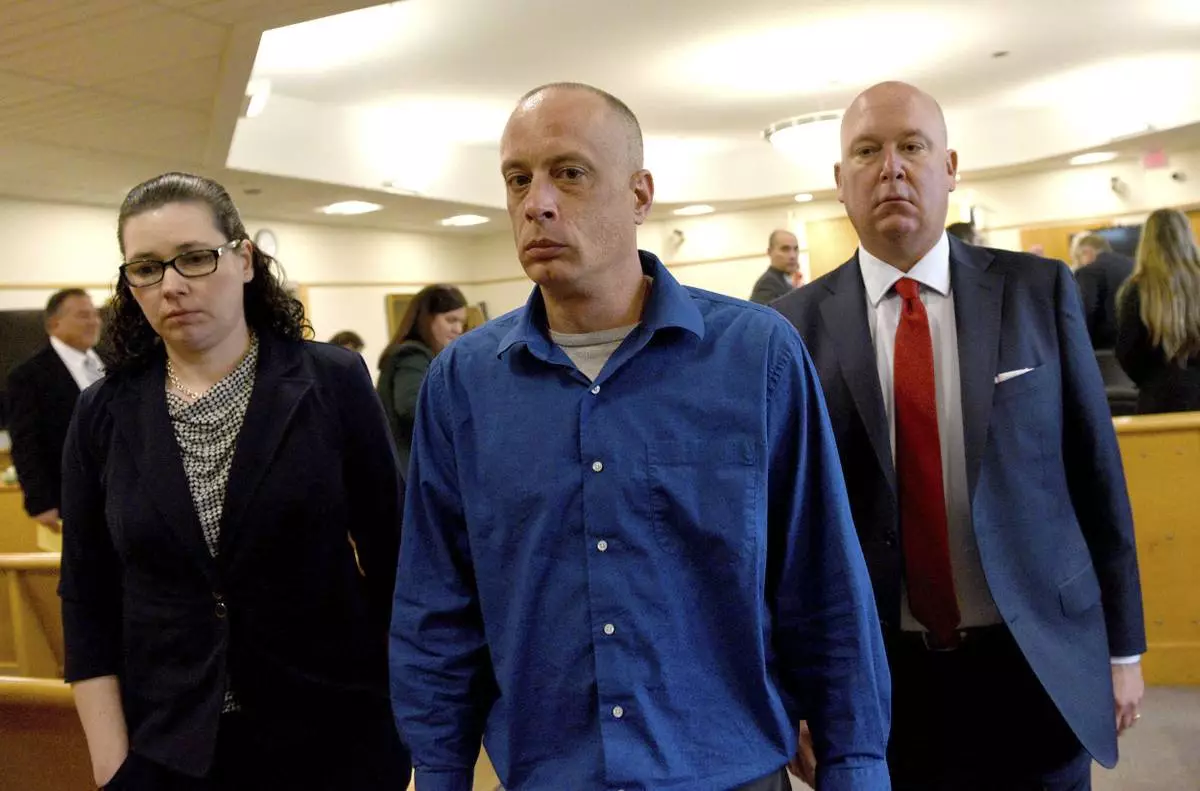
Plaintiff David Meehan, center, leaves the courtroom with his attorney Rus Rilee, right, and victim specialist Joelle Wiggin during Meehan's trial at Rockingham Superior Court in Brentwood, N.H., April 10, 2024. The jury found the state liable for abuse at its youth detention center and awarded the sum to Meehan, a former resident who says he was beaten and raped as a teen. (David Lane/Pool Photo via AP)
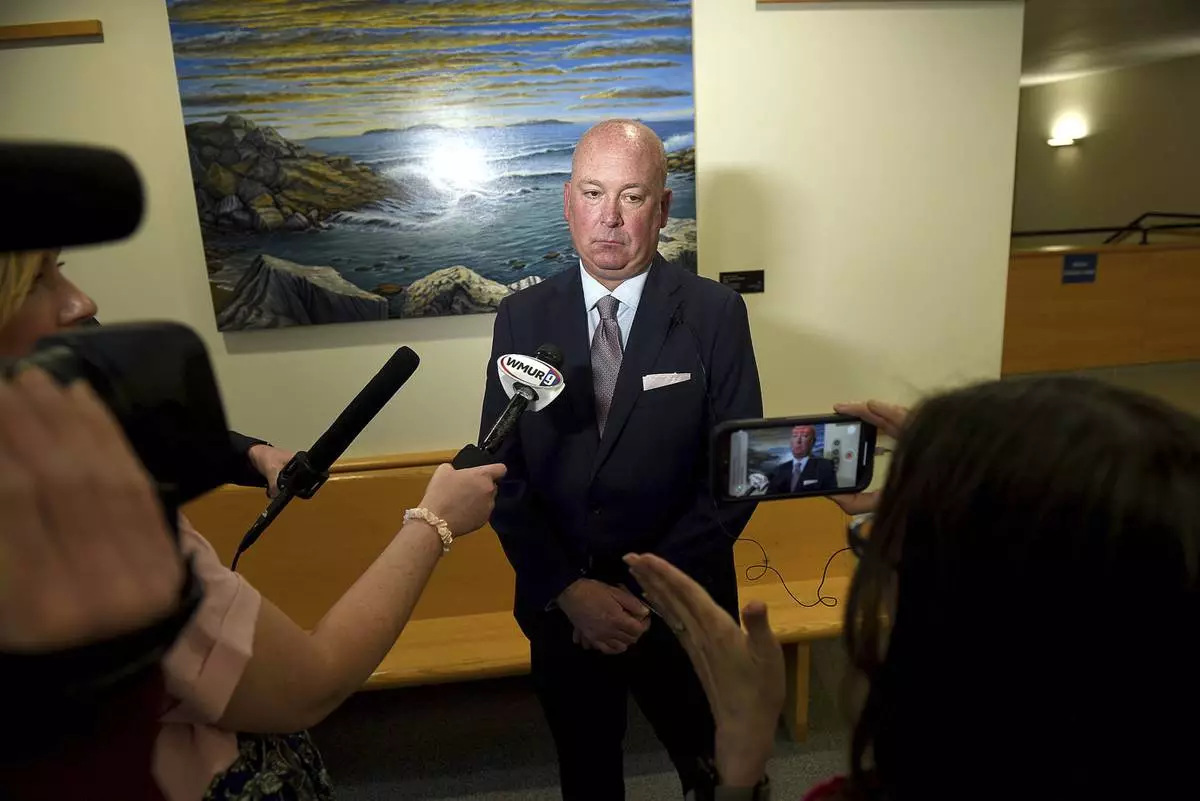
Plaintiff's attorney Rus Rilee speaks to media after a $38 million ruling was awarded to David Meehan in the youth center abuse trial at Rockingham County Superior Court in Brentwood, N.H., Friday, May 3, 2024. The jury found the state liable for abuse at its youth detention center and awarded the sum to Meehan, a former resident who says he was beaten and raped as a teen. (David Lane/Pool Photo via AP)
RIO DE JANEIRO (AP) — A 20-minute drive separates the historic Maracana Stadium from the Complexo do Alemao, the biggest complex of favelas in Rio de Janeiro and one of the most impoverished and violent.
One of its residents, 15-year-old soccer player Kaylane Alves dos Santos, hopes her powerful shots and impressive dribbles will allow her to cover that short distance to the stadium in three years to play for Brazil's national team in the final of the 2027 Women's World Cup.
That chance, once remote, became more realistic on Friday when FIFA members voted to make Brazil the first Latin American country to host the Women's World Cup.
Local organizers have suggested that both the opening match and the final are likely to be played at the 78,000-seat Maracana Stadium that staged the final matches of the 1950 and the 2014 men's soccer World Cups.
Teenager dos Santos knows the hurdles for her to ever play for Brazil remain enormous — in 2027 or later. She doesn't have a professional club to play for, she only trains twice a week, and her nutrition is not the best due to limited food choices in the favela.
Most importantly, she often can't leave home to play when police and drug dealers shoot at each other in Complexo do Alemao.
Still, she is excited and hopeful about Brazil hosting the Women's World Cup, resulting in a big boost to her confidence.
“We have a dream (of playing for Brazil in the Women’s World Cup), and if we have that chance it will be the best thing in the world,” dos Santos told The Associated Press this week after a training session in the Complexo do Alemao.
She and about 70 other young women in the Bola de Ouro project train on an artificial grass pitch in a safe region of the 3-square kilometers long (1.15 square mile) community.
If not on the pitch, Dos Santos and her teammates will be happy enough just to attend games of a tournament they could only dream of watching up close until FIFA members voted for Brazil over the Germany-Netherlands-Belgium joint bid. The Women's World Cup was played for the first time in 1991 and will have its 10th edition in 2027.
A five-time champion in men's soccer, more than any other country, Brazil has yet to win its first Women's World Cup trophy. By then, it is unlikely superstar Marta, aged 38, will be in the roster. Dos Santos and thousands of young female footballers who have overcome sexism to take up the sport are keen to get inspiration from the six-time FIFA player of the year award winner and write their own history on home soil.
As many female footballers experience in Brazil, dos Santos and her teenage teammates rarely play without boys on their teams. Until recently, they also had to share the pitch with five-year-old girls, which didn't allow the older players to train as hard as they would like.
“(The Women's World Cup in Brazil) makes us focus even more in trying to get better. We need to be able to play in this,” said 16-year-old Kamilly Alves dos Santos, Kaylane's sister and also a player on the team. “We need to keep training, sharing our things."
Their team, which has already faced academy sides of big local clubs like Botafogo, is trained by two city activists who once tried to become players themselves.
Diogo Chaves, 38, and Webert Machado, 37, work hard to get some of their players to the Women's World Cup in Brazil, but if that's not possible they will be happy by keeping them in school.
Their non-profit group is funded solely by donations.
“At first, basically, the children wanted to eat. But now we have all of this,” said Chaves, adding that the project began three years ago. “We believe they can get to the national team. But our biggest challenge is opportunity. There's little for children from here, not only for the girls.”
Machado said the two coaches “are not here to fool anyone” and do not believe all the young women they train will become professionals.
“What we want from them is for they to be honest people, we all need to have our character,” Machado said. “We want to play and make them become nurses, doctors, firefighters, some profession in the future."
The two dos Santos sisters, as do many of their teammates, believe that reaching the Women's World Cup as Complexo do Alemao residents is possible. Brazil has more than 100 professional women's soccer teams, with other players living in favelas, too.
But it won't be easy.
“Sometimes I have to cancel appointments because of shootings, because there’s barricades on fire,” she said. “Sometimes police tell us to go back home, they say we can’t come down and point their guns to me, to my mother,” said Kamilly.
Her sister hopes the pair will overcome the violence, against the odds.
“I want to earn my living in soccer, fulfill all dreams," Kaylane says. "And I want to leave the Complexo do Alemao. I want to make it happen.”
AP soccer: https://apnews.com/hub/soccer

An overhead view of the pitch where young women take part in a soccer training session run by the Bola de Ouro social program at the Complexo da Alemao favela in Rio de Janeiro, Brazil, Thursday, May 16, 2024. (AP Photo/Silvia Izquierdo)

Agatha smiles during a soccer training session run by the Bola de Ouro social program, at the Complexo da Alemao favela in Rio de Janeiro, Brazil, Thursday, May 16, 2024. Young women are participating in soccer programs led by community trainers, where they receive both sports and personal development training. (AP Photo/Silvia Izquierdo)

Agatha strikes a ball during a soccer training session run by the Bola de Ouro social program, at the Complexo da Alemao favela in Rio de Janeiro, Brazil, Thursday, May 16, 2024. Young women are participating in soccer programs led by community trainers, where they receive both sports and personal development training. (AP Photo/Silvia Izquierdo)

Young women ready breakfast for fellow participants as part of a soccer training session run by the Bola de Ouro social program, at the Complexo da Alemao favela in Rio de Janeiro, Brazil, Thursday, May 16, 2024. Young women are participating in soccer programs led by community trainers, where they receive both sports and personal development training. (AP Photo/Silvia Izquierdo)

Relatives watch a soccer training session for young women run by the Bola de Ouro social program at the Complexo da Alemao favela in Rio de Janeiro, Brazil, Thursday, May 16, 2024. Young women are participating in soccer programs led by community trainers, where they receive both sports and personal development training. (AP Photo/Silvia Izquierdo)

Young women and their coach Dioguinho bring it in for a team huddle at the start of a soccer training session run by the Bola de Ouro social program, at the Complexo da Alemao favela in Rio de Janeiro, Brazil, May 16, 2024. Young women are participating in soccer programs led by community trainers, where they receive both sports and personal development training. (AP Photo/Silvia Izquierdo)





